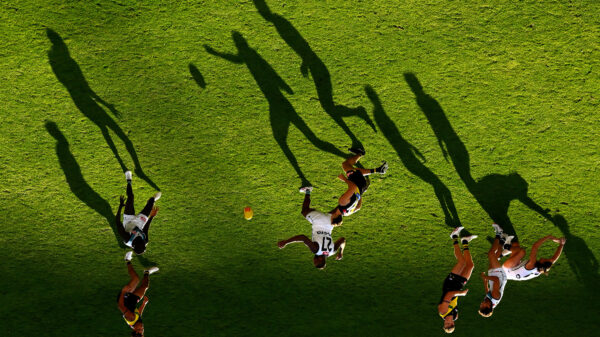The recent election in Tasmania has resulted in a hung parliament, giving the Liberal Party the first opportunity to form a minority government. In this election, held on July 29, 2023, the Liberals secured 14 seats, while the Labor Party won nine seats, both parties falling short of the 18 seats required for a majority in the 35-seat lower house.
Jeremy Rockliff, the Premier of Tasmania and leader of the Liberals, announced that he would reach out to the crossbench independents, who are primarily left-leaning and critical of the government’s plans for a new $945 million AFL stadium in Hobart. The election results also included four independent candidates, with three more seats still being counted, and the final tally is not expected until August 2, 2023.
Dean Winter, leader of the Labor Party, expressed that Rockliff has “the first opportunity” to form a government. Despite Labor’s poor showing, which resulted in its worst primary vote in Tasmania’s history, Winter has not ruled out seeking to lead the government if the Liberals fail to secure enough support. Notably, he has stated he will not enter into a deal with the Greens, whose five votes could be crucial for any coalition.
Among the elected independents, Craig Garland and Kristie Johnston have both opposed the stadium project, while Peter George, a campaigner against salmon farming, will be entering parliament for the first time. Incumbent David O’Byrne, who supports the stadium, has also retained his seat.
In a press conference on July 30, Rockliff emphasized the importance of the Liberal Party’s position as the party with the most seats, suggesting that the crossbench would recognize this in their negotiations. “My view is the crossbench in the cold, hard light of day will recognize the party with the most number of seats is able to form a cabinet,” he stated.
Garland has indicated a willingness to support either Rockliff or Winter as premier, suggesting that discussions will take place once the election results are finalized. Johnston, on the other hand, has made it clear that she will not enter into a formal agreement with either major party for confidence and supply but will provide support based on the merits of policies presented.
Tasmania is likely to remain in a state of political uncertainty as the counting continues. Rockliff reiterated his commitment to the stadium project, linking it to the Tasmania Devils’ bid to enter the AFL by 2028. He pointed to the support for the stadium from both major parties, noting that nearly two-thirds of Tasmanians voted for candidates who are in favor of the project.
Winter, when asked about his stance on the stadium, reaffirmed his support, despite the potential need to negotiate with the anti-stadium Greens for cooperation. Rosalie Woodruff, leader of the Greens, expressed hope for discussions with Winter while maintaining her party’s firm opposition to the stadium.
The early election was prompted in June when Rockliff faced a no-confidence motion that criticized the government for increasing debt and issues surrounding the delivery of the Bass Strait ferry. The motion received backing from Labor, the Greens, and three crossbench members, including Garland and Johnston.
As Tasmania navigates this complex political landscape, the coming weeks will be critical in determining how the newly elected representatives will shape the future of governance in the state.





























































